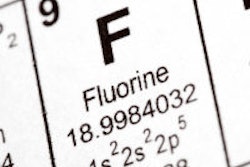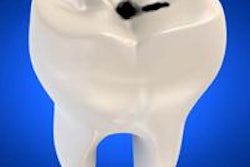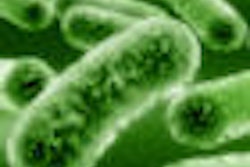German researchers have found new evidence that fluoride affects the adhesion force of bacteria that stick to teeth and produce the acid that causes caries, according to a study in Langmuir (April 4, 2013).
Despite a half-century of scientific research, controversy still exists over exactly how fluoride compounds reduce the risk of tooth decay. The caries-preventive effect for teeth is often traced back to effects on demineralization. Research established long ago that fluoride helps to harden the enamel coating that protects teeth from the acid produced by decay-causing bacteria. Newer studies have found that fluoride penetrates into and hardens a much thinner layer of enamel than previously believed, lending credibility to other theories about how fluoride works.
For the new study, researchers used indirect macroscopy to study fluoride's effect on bacterial adhesion. To characterize adhesion on fluoridated samples on a single bacterial level, they used force spectroscopy with bacterial probes to measure adhesion forces directly.
The researchers tested the adhesion of Streptococcus mutans, S. oralis, and Staphylococcus carnosus on smooth, high-density hydroxyapatite surfaces, pristine and after treatment with fluoride solution.
All bacteria species showed lower adhesion after fluoride treatment of the surfaces.
The experiments -- performed on artificial teeth (hydroxyapatite pellets) to enable high-precision analysis techniques -- reveal that fluoride reduces the ability of decay-causing bacteria to stick, so that also on teeth, it is easier to wash away the bacteria by saliva, brushing, and other activity.
The findings suggest that the decrease of adhesion properties is a further key factor for the cariostatic effect of fluoride besides the decrease of demineralization.



















